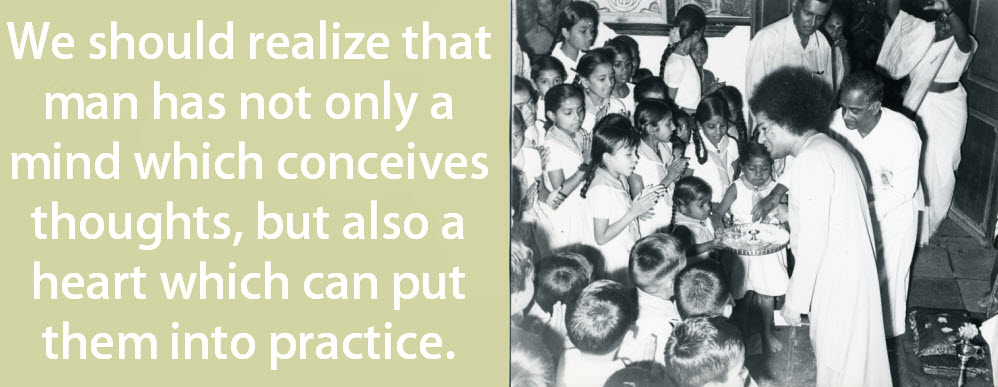
| Devotion Program >Resources > Prayers > Aarathi, Asathoma and Sarva Dharma Prayers | |||||||||||||||||||||||
 |
|||||||||||||||||||||||
The prayer-song Arathi is often (but does not have to be) sung at the close of a devotional singing (bhajan) session.The word refers both to the song-prayer and the waving of a camphor flame to a Deity. Arathi is sung and performed to develop highest love for God and to express devotion. In Hindu temples, one may find Arathi being sung and performed to various aspects of God, such as Ganesha, Durga, and even the Ganges river. Correspondingly, there are different versions of the Arathi song. Arathi is sung and performed at the end of each darshan in Prasanthi Nilayam, while a camphor flame is waved in a slow circle, facing Bhagavan. It has been said that the camphor flame has itself has been endowed by Bhagavan with the value and validity of a grand prayer, the culmination of the hour-long yearning (during the bhajan session) of all devoted hearts. Bhagavan says, "While it is being waved pray : O Lord! Make the allotted span of my life as pure, as fragrant, and as transparent as camphor; let it consume itself in the fire, scattering light and the warmth of love to all around me, and, at the end of it all, let there be nothing left of me (as the camphor leaves no ashes or residue) to render me liable to another sojourn amidst pleasure and pain." As with all rituals, it is not necessary to sing Arathi and wave the flame. Sai Center meetings should reflect the culture of the people in the local community as well as its members, and Center meetings should be such that they are welcoming to members of all religions.
|
|||||||||||||||||||||||